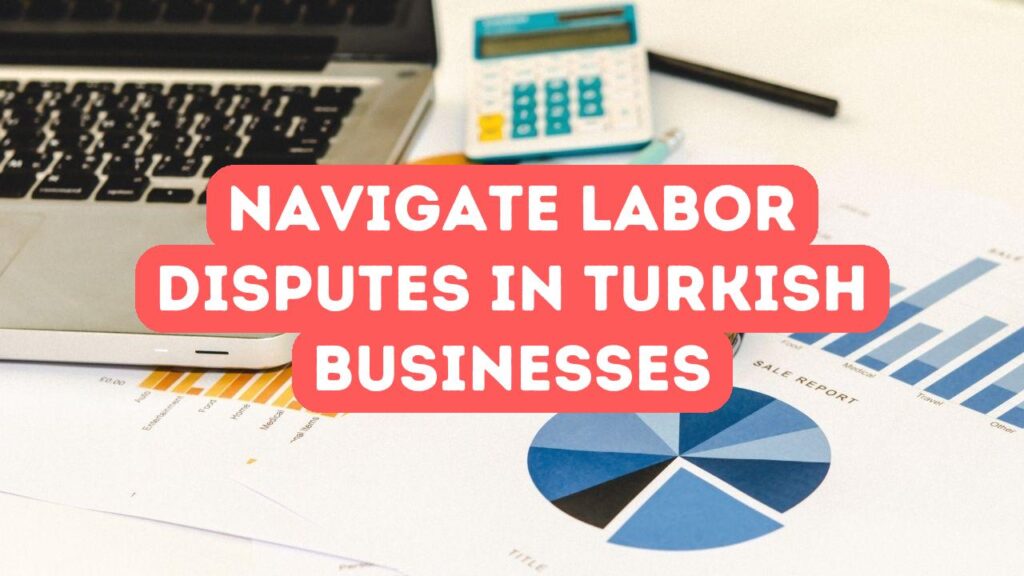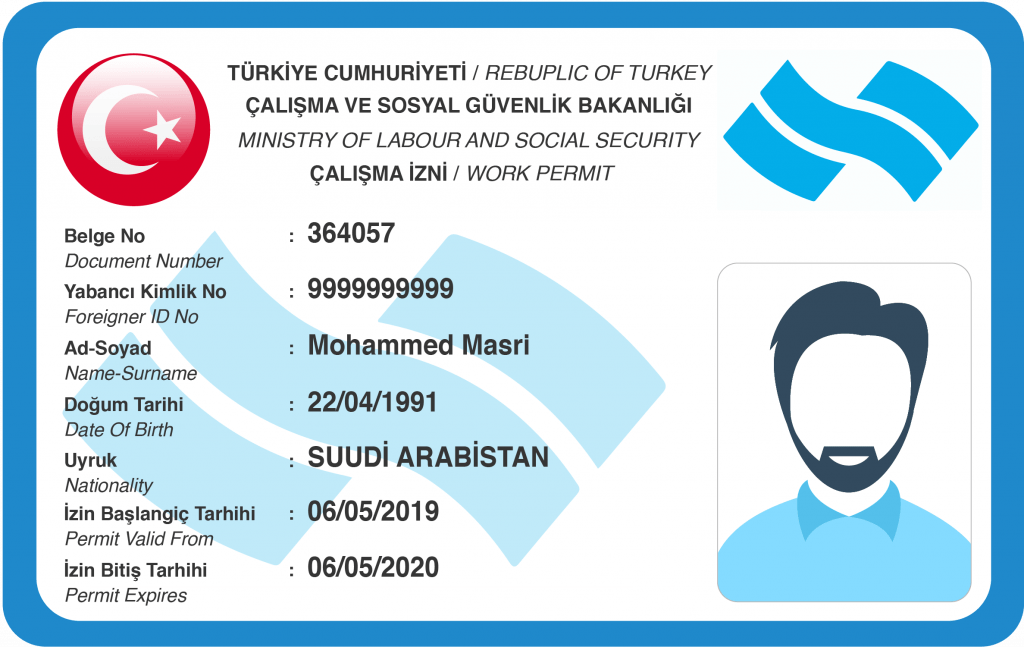Navigating labor disputes in Turkey can feel like walking a tightrope. It’s a complex dance of aligning employer and worker interests while adhering to Turkey labor laws. Imagine a bustling Turkish bazaar, where every stall represents diverse employment rights Turkey aims to protect. There’s no room for error, as missteps can escalate conflicts rapidly. As dispute resolution Turkey becomes critical, understanding the ropes is vital. Legal frameworks provide guidance but require diligent attention. The stakes are high—your business’s reputation and workers’ well-being hang in the balance. So, how do you successfully navigate labor conflicts? By learning the rules of engagement and applying effective negotiation techniques. It’s like setting sail in choppy waters; steadiness and preparedness steer you clear of storms. This guide will arm you with essential strategies and insights, ensuring that your approach to these disputes is informed and proactive, not reactive. Buckle up—we’re diving into the heart of labor dynamics!
Understanding the Legal Framework of Labor Disputes in Turkey
Understanding the legal framework of labor disputes in Turkey is akin to deciphering an intricate map. The core lies in grasping Turkey labor laws, which act as the compass guiding both employers and employees through the dense forest of rights and responsibilities. Navigating labor conflicts requires knowledge of employment rights Turkey safeguards, ensuring all parties walk the tightrope fairly. Notably, dispute resolution Turkey provides structured pathways to amicable solutions, emphasizing dialogue and understanding. Just like admiring a majestic tapestry, one must appreciate each thread in the fabric of labor law. This comprehensive approach helps in not just avoiding but effectively easing labor disputes Turkey often experiences. When you grasp the legal subtleties, you stand on solid ground. Thus, the path through this labyrinth becomes more navigable, transforming potential chaos into harmony. Remember, preparation is your ally in these legal intricacies, providing a sturdy anchor in the ever-shifting seas of labor relations.
In the colorful mosaic of Turkey labor laws, every piece has its place and purpose, guiding the resolution of labor disputes Turkey encounters. Employers and employees must understand the scope of employment rights Turkey envisions, which are essential to navigating labor conflicts with fairness and precision. Consider the labyrinth of these laws as the backbone of dispute resolution Turkey facilitates, setting clear expectations and defining the obligations of all involved. It’s crucial to recognize that these legal principles are not merely obstacles but allies in maintaining workplace harmony. Like a seasoned navigator charting the stars, aligning with Turkey labor laws provides direction amidst uncertainty. This knowledge acts as a vital tool, helping businesses settle disputes smoothly and preserving the integrity of the workplace. By comprehensively addressing the legal landscape, one can shift the focus from conflict to resolution, ensuring that every party’s rights are honored and disputes are resolved amicably.
In the unpredictable theater of labor disputes Turkey sees, preparation isn’t just half the battle—it’s the whole play. When navigating labor conflicts, knowledge of Turkey labor laws empowers both employers and workers, offering a balanced stage to address grievances. The aim isn’t merely to bypass conflicts but to resolve them with dignity and respect. By comprehending dispute resolution Turkey mechanisms, everyone steps onto the stage with a shared script—one based on mutual understanding and respect for employment rights Turkey holds in high regard. Think of it as choreographing a delicate ballet, where every move is guided by the law’s rhythm. Engaging legal insights ensures that each negotiation is poised and well-directed, making disputes not feared battles, but structured dialogues. With the right legal compass, you’re not just equipped to handle labor disputes, but ready to transform what could be a standoff into constructive solutions, preserving workplace peace.
Strategies for Effective Negotiation in Turkish Labor Conflicts
Effective negotiation in labor disputes Turkey requires a fine blend of strategy and understanding. Picture a game of chess, where every move counts and foresight is key. It’s not just about knowing Turkey labor laws but also about mastering the art of navigating labor conflicts. Start by building trust with active listening—a simple, yet powerful tool. When parties feel heard, the path to resolution becomes clearer. Engage in open discussions about employment rights Turkey values, making sure all voices are included. Approach each negotiation as a collaborative problem-solving exercise, rather than a battle of wills. Adopting this mindset minimizes conflict and fosters long-term cooperation. Remember, in dispute resolution Turkey, every step you take either cements relationships or causes further discord. So, tread carefully, armed with empathy and respect. Your goal is not only to resolve the issue at hand but also to lay down a future paved with mutual understanding and growth.
When navigating labor conflicts in Turkey, preparation is your compass. Pre-negotiation groundwork lays the foundation for effective discussions. Begin by thoroughly understanding Turkey labor laws—they are the rulebook every player follows. Knowing these laws allows you to stand firm and avoid unnecessary pitfalls. Effective negotiation hinges on clarity, so articulate your objectives and desired outcomes clearly. Consider potential solutions and remain open to alternatives. Flexibility can transform a stalemate into a stepping stone. Employment rights Turkey protects should be at the forefront, reminding everyone involved of the shared goal. In dispute resolution Turkey is not about overpowering, but harmonizing varied interests. Build a bridge through empathy, seeing the process from both sides. This approach turns adversaries into allies, creating a win-win situation. The art of negotiating effectively is like solving a jigsaw puzzle—every piece matters, but only when they fit together seamlessly do you see the complete picture.
In the labyrinth of labor disputes Turkey presents, strategic thinking is your trusted guide. Picture yourself as a maestro orchestrating a symphony of diverse interests. The first note of this composition is recognizing the cultural nuances embedded within Turkish negotiations. Turkey labor laws frame the discourse, but cultural sensitivity colors the outcomes. As you work through navigating labor conflicts, foster a sense of inclusion where all perspectives contribute to the harmony. Deliberate on employment rights Turkey emphasizes, ensuring everyone feels invested in a fair outcome. Observe patience—it’s not just a virtue but a strategy. Allow time for ideas to percolate and for trust to grow. In dispute resolution Turkey, patience paves the way for peaceful consensus. Keep the lines of communication open, promoting transparency as a shield against misunderstanding. With each step, you mitigate tensions, creating a negotiation process as refined and balanced as a Turkish carpet, rich with purpose and precision.
The Role of Mediation and Arbitration in Resolving Labor Disputes
Mediation and arbitration have become cornerstones in resolving labor disputes in Turkey. Think of them as the peacekeepers in the bustling marketplace of Turkey labor laws, where both employers and employees seek common ground. With labor disputes Turkey often arising from challenges in understanding employment rights Turkey, these methods offer a structured path to resolution. Mediation allows conflicting parties to negotiate terms in a collaborative fashion, much like haggling prices in a Turkish bazaar, aiming for a win-win outcome. Arbitration, on the other hand, offers a more formal approach, where a neutral party provides a binding decision, ensuring clarity and finality. Both methods are integral to dispute resolution Turkey, reducing the potential for prolonged conflicts. In essence, by incorporating mediation and arbitration into your strategy, you can effectively steer clear of costly legal battles, promoting a harmonious workplace.
Mediation and arbitration aren’t just resolutions; they’re lifelines for navigating labor conflicts in Turkey. Imagine your business amidst a sea of labor disputes Turkey—these tools are like seasoned captains, guiding you through turbulent waters of Turkey labor laws. As you grapple with different interpretations of employment rights Turkey, mediation creates a communicative bridge, fostering dialogue and mutual understanding. It’s akin to two voices in a harmonious duet, each respecting the other’s melody. Arbitration, meanwhile, stands as a lighthouse, shining clarity on the gray areas with its binding decisions, reducing uncertainty. These practices are indispensable to dispute resolution Turkey, minimizing disruptions and safeguarding your business from rocky shores. By championing these methods, you not only uphold compliance with Turkey labor laws but also cultivate a trusting environment where every worker knows their rights, ensuring a smooth voyage ahead.
Mediation and arbitration in resolving labor disputes Turkey embody another layer of protection in a dynamic landscape. Picture them as vigilant watchmen at the gate of Turkish labor laws, bridging the gap where employment rights Turkey might otherwise be lost in translation. These processes, crucial to navigating labor conflicts, are akin to skilled craftsmen methodically restoring peace amidst potential chaos. While mediation offers a stage for parties to express grievances and reach amicable solutions, akin to a diplomatic handshake, arbitration delivers a definitive verdict, much like a judge’s gavel declaring justice. Embracing both methods in dispute resolution Turkey not only prevents the fracture of workplace harmony but also fortifies your business against legal storms. By mastering these tools, you secure a workplace where respect for the letter of Turkey labor laws blends seamlessly with respect for the spirit, fostering an ecosystem of mutual trust and understanding.






